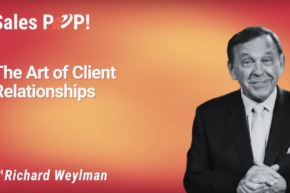In this Expert Insight Interview, Rusty Gaillard discusses the reasons smart people make bad decisions and how to change this. Rusty Gaillard is an author and executive coach who works with Silicon Valley Dreambuilders.
This Expert Insight Interview discusses:
- Why smart people often make bad decisions
- “The A Trap” and how it hampers our decision making
- Why we need a comprehensive decision-making process for our most difficult decisions
Smart People and Bad Decisions
Everyone has their own decision-making process in their head, and it seems to work for the most part. At least until it doesn’t, and until it comes to bite us. All jokes aside, decision-making can be quite crippling for some people, and it is so fraught for a few reasons.
First, there is a lot at stake when making a decision, especially if you’re intelligent. Smart people are accustomed to making good decisions — that’s how they got where they are. So, part of the challenge is just the weight that any decision carries. Often, the fear of making a wrong decision gets in people’s way.
The A Trap
Another element to the problem of intelligent people making bad decisions is that your decision-making process works for you until it doesn’t. Many of us come to this point where the decisions we make, the way we approach our work, and our life works very well up until a certain point.
Then, we get stuck. The problem is, as intelligent people when something goes wrong, we go back to what has always worked for us, and we double down on it. We don’t make any progress by continuing to work hard on using the same tools and techniques we’ve always used. When the going gets tough, we fall back on what’s always worked, but what’s always worked is not working the same way anymore, so we get stuck. Rusty Gaillard calls this “The A Trap.”
Decision-Making Process
None of us are taught how to make decisions or expressly taught a decision-making process. We watch other people, we make it up on our own, or it happens organically, and it typically works for a while, but there’s no actual process behind it.
Fundamentally, most decisions we make are reversible or adjustable. There are very few decisions you cannot change once they’ve been made, which is important to realize. The decisions you cannot change typically have the highest stake, and you need a reasonably robust decision-making process for these.
Our Host
John is the Amazon bestselling author of Winning the Battle for Sales: Lessons on Closing Every Deal from the World’s Greatest Military Victories and Social Upheaval: How to Win at Social Selling. A globally acknowledged Sales & Marketing thought leader, speaker, and strategist, he has conducted over 1500 video interviews of thought leaders for Sales POP! online sales magazine & YouTube Channel and for audio podcast channels where Sales POP! is rated in the top 2% of most popular shows out of 3,320,580 podcasts globally, ranked by Listen Score. He is CSMO at Pipeliner CRM. In his spare time, John is an avid Martial Artist.








Comments